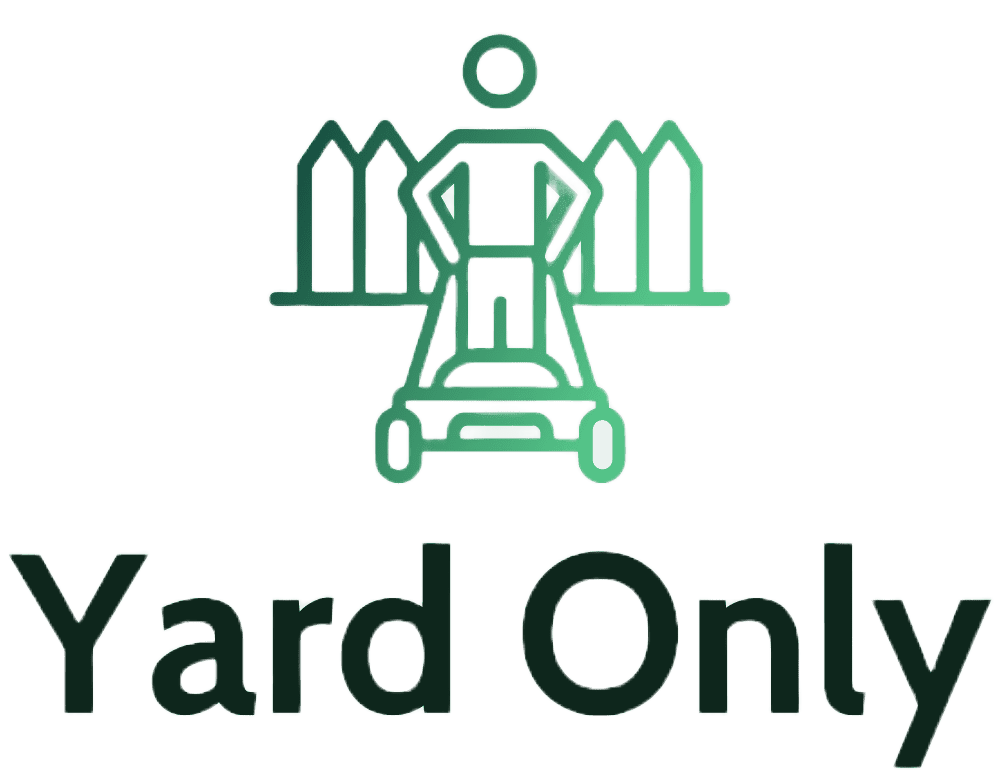Does mulch help with drainage? Or is it a garden myth? This article explores the intricate relationship between mulch and drainage. I will delve into its functions and the effectiveness of varied mulch types on water flow and determine whether mulch is a boon or a bane for optimal plant health. So, let’s get down in the dirt with mulch to answer this burning question for all gardening enthusiasts.
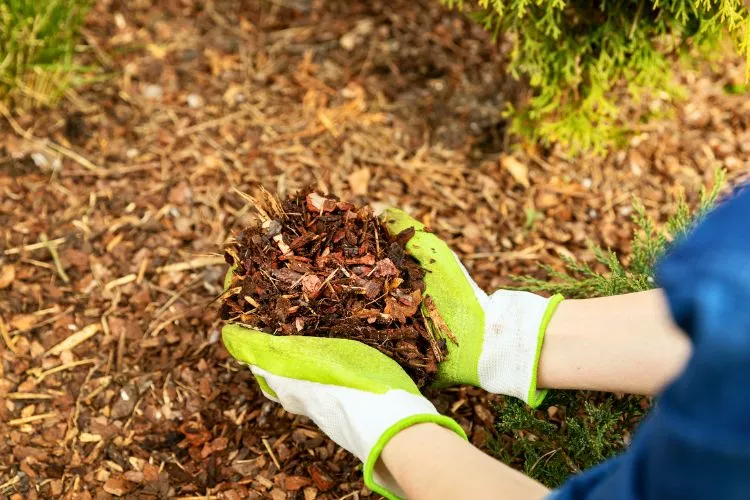
Does mulch help with drainage?
Yes, mulch can help with drainage, but its effectiveness depends on the type of mulch used and the specific drainage requirements of the site. Organic mulches like wood chips, bark, and shredded leaves improve soil structure by encouraging beneficial microorganisms and promoting the decomposition of organic matter. This results in better aeration and drainage in the soil.
Inorganic mulches, such as gravel or stones, facilitate water runoff on the surface, which can help prevent soil erosion in sloped areas. However, these inorganic materials do not contribute to improving soil structure.
To ensure that mulch aids drainage, choosing the appropriate mulch type is essential, considering the nature of the soil, the plants grown, and the garden’s layout. Also, proper application, regular maintenance, and periodic mulch replacement will support optimum drainage in the garden.
Which mulch is best for drainage?
Mulch is a crucial component of a healthy garden, offering benefits such as insulation, weed control, and enhancing aesthetic appeal. However, the type of mulch you choose can make a significant difference when it comes to managing drainage.
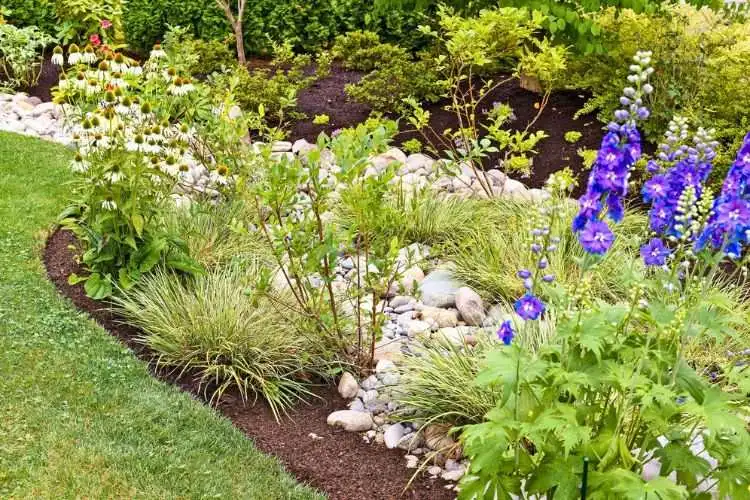
Let’s take a closer look:
- Organic Mulches: These include bark chips, wood chips, straw, pine needles, and compost. Organic mulches are excellent for improving the soil structure over time. As they decompose, they contribute to the soil structure, fostering an environment conducive to the beneficial microbes that regulate soil health. This process ultimately assists in better water infiltration and drainage.
- Inorganic Mulches: Examples are grit, gravel, pebbles, or crushed stone. These don’t aid water infiltration into the soil. However, they can help avert soil erosion in sloped areas by decreasing surface runoff velocity and promoting water dispersion.
Key Considerations
- Soil Type: Soils differ, with clay, silt, and sand having unique drainage characteristics. Organic mulch generally improves the drainage and water-holding capacity in sandy soils and reduces excess water in clay soils.
- Plant Type: Different plants have different moisture and drainage needs. Mulch should correspond to these requirements to promote plant health.
- Garden Topography: If your garden has a slope or is prone to erosion, gravel or other inorganic mulches may aid water dispersion and prevent erosion.
Overall, organic mulches are usually preferred due to their soil-enhancing properties; the ideal mulch for drainage will depend on various factors relating to your specific garden conditions.
Remember, proper application and regular mulch maintenance are as important as the choice of the mulch itself!
Does rubber mulch help with drainage?
Yes, rubber mulch can help with drainage to some extent. Being an inorganic mulch, rubber doesn’t absorb water but lets it pass through, reaching the soil beneath. This quality allows it to facilitate water flow away from plant roots, which can be beneficial in preventing waterlogged soil. However, it’s important to note that rubber mulch does not improve or contribute to soil structure like organic mulches. Furthermore, while rubber mulch allows for water passage, other material like pea gravel reportedly creates better water drainage.
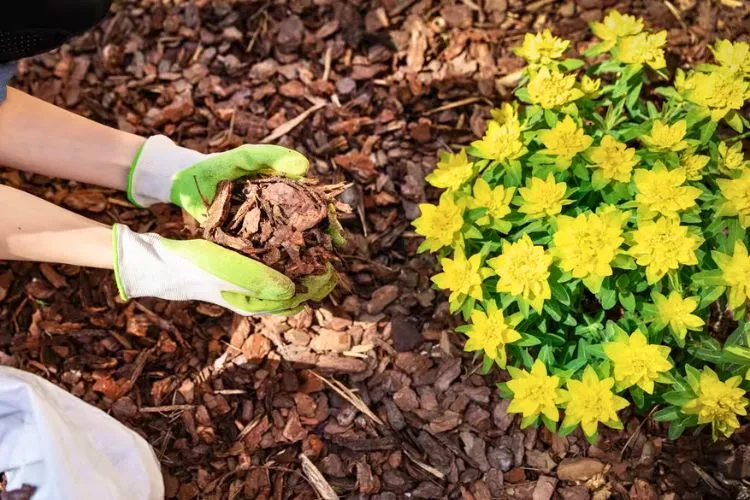
Remember that while the drainage properties of rubber mulch can be beneficial in certain respects, considerations like environmental impact, cost, visual appeal, and the specific requirements of your garden plants also play a role in choosing the best mulch for your landscape.
Is mulch or gravel better for drainage?
When considering if mulch or gravel is better for drainage, the answer depends largely on the specific needs of your landscape. Mulch can help the soil retain moisture and reduce surface evaporation, which can be particularly beneficial in areas that receive less water. It also adds nutrients to the soil as it decomposes, promoting healthier plant growth. In contrast, pea gravel, a common type of inorganic mulch, facilitates healthy drainage by slowly percolating water back into the soil. Rock or gravel can also prevent soil from washing away near downspouts, effectively increasing drainage.
Thus, mulch might be your preferred choice if you want to improve soil health and nutrient content while maintaining moderate water retention. On the other hand, gravel can be a more efficient solution for enhanced drainage in areas prone to water collection or soil erosion. Note that gravel and stone work exceptionally well as mulches in areas with good drainage needs or beds with plants that appreciate additional heat, like those in Mediterranean herb and rain gardens.
What is the best material for yard drainage?
Hardscape exterior materials like concrete and asphalt can be used effectively for patios or driveways. These materials can dry out quickly and keep the surface area above the wet ground. The installation of a French drain could also be an effective solution. The materials needed for such an installation include gravel and a corrugated drainage pipe. Other yard drainage materials suggested include downspout extenders and catch basins to drain excess water. Channel drains are suggested for areas that easily flood, like driveways and patios.
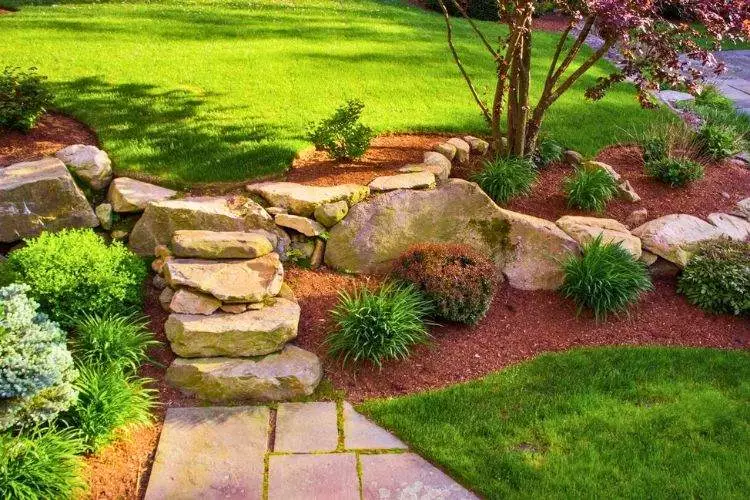
Lastly, a landscape drainage swale resembling a dry stream bed can be a good option for yard drainage. This drainage system includes a perforated underground pipe that transports excess water into a dry well.
Remember that the effectiveness of these materials and systems can depend on your yard’s specific requirements and layout.
Is it better to put rocks or mulch next to your house?
Deciding whether to put rocks or mulch next to your house depends on your landscape’s specific needs and desired benefits. Here’s a comparison of both:
Rocks:
- Pros: Rocks provide good drainage, keep soil in place, and require low maintenance.
- Cons: They do not contribute to soil quality, can increase heat around plants, and can be more expensive initially.
Mulch:
- Pros: Mulch helps retain soil moisture, suppresses weeds, improves soil quality, attracts beneficial organisms, and is generally lower cost.
- Cons: Mulch breaks down over time, requiring periodic replacement, and may attract pests.
If drainage is your primary concern, rocks might be a better option. However, if improving soil quality and moisture retention is more important, mulch would be the better choice. For better growth and less water usage, mulch is generally preferred. Remember that different landscaping materials have advantages and disadvantages, and the choice might also depend on the aesthetics you want for your landscape.
You May Also Read: How to Keep Yard Drains from Clogging | How To Fix Overwatered Lawn?
Conclusion:
Mulch can be pivotal in drainage management within a garden or landscape. The positive effects of organic mulches on soil structure, moisture retention, weed suppression, and overall plant health make them a popular choice for gardeners seeking to boost their gardens’ aesthetics and functionality.
While inorganic mulches like rocks and gravel can offer better drainage and erosion control in specific situations, their lack of nutrient contribution to the soil might make them less desirable for those pursuing lush, healthy plant growth.
